fire escape in style
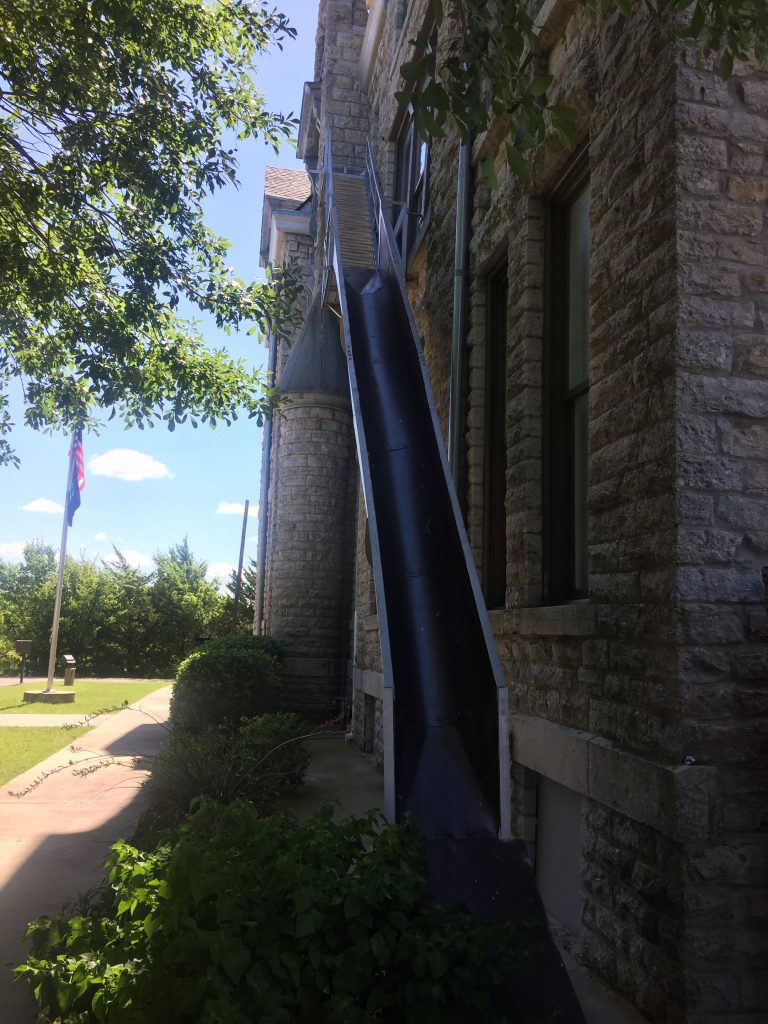
The traveler explores the American Wayside, verifying the contents of a mysterious guide written by a man with whom he shares a likeness and name. Excerpts from ‘Autumn by the Wayside: A Guide to America’s Shitholes’ are italicized. Traveler commentary is written in plain text.

The Editor and I go several days without fresh food on a long, empty strip of interstate that runs through the center of Nebraska. By the time we reach ‘Sebastian’s U-Pick’ we’re starved for anything that isn’t plastic-wrapped or roller-warmed and we’re ready to stretch our legs.
Autumn, here, is cold and dry and the knuckles of my hands are chapped by the ride. I notice the Editor shivering, sometimes, and I wonder what she thinks about on the long, silent stretches between destinations. She would never tell me and she would never admit to the discomfort but we are both clearly relieved by the relative warmth of walking in the apple orchard at ‘Sebastian’s.’
We quickly fill a basket and stop ourselves before filling another, resting, instead, at the base of a tree. After an hour, the woman from the front finds us both napping over the books we’ve neglected for months, each having managed only a few pages more.
“Don’t get up on account of me,” she smiles, seeing our embarrassment, “I wondered if I could just get some quick input from you.”
The woman slides a tablet from her bag and it opens to a question:
‘Should Sebastian’s U-Pick transition to a management structure suitable for conversion from a ‘Partnership’ to an ‘LLC’?’
The woman kneels long enough for the Editor to drowsily press the ‘Yes’ option and smiles again as she stands:
“I’ll get that going right away!”
“Get what going?” the Editor asks, paranoid, suddenly, “I didn’t agree to anything.”
“The management conversion.”
‘On paper, nothing is lazier than a so-called ‘u-pick’ farm, a business that has the audacity to charge customers to take the position of workforce. The reality is that a business’ average customer is entirely ignorant to the nuances of the products and services that they consume. America has not seen a revolution in ‘U-Sew’ sneaker factories because the average shoe-wearer would sooner be sucked into the complex factory workings than understand the first thing about the intricacies involved in even capping the laces that hold them to their feet (destroying the expensive machine and creating a gruesome litigation scenario in the process). A ‘u-pick’ farm, in reality, maintains the normal workforce and hires baby-sitters to keep the pickers from harming themselves or simply descending upon the crops like SUV driving locusts. It is the worst of many worlds.
‘Sebastian’s U-Pick’ embraces the madness of ‘the customer is always right,’ allowing strangers to pick their fruit and to make sweeping, corporate-level decisions based on nothing but their seasonal whims. It has dissolved dozens of times but rises from bankruptcy like a suicidal phoenix, suffering the combined trauma of a lifetime of failed trust-falls.’
Weeks pass and the Editor’s choice follows her. She spends free hours carefully researching tax law and sifting through the poorly digitized newspapers of distant Nebraska counties for any mention of ‘Sebastian’s.’
“It was a moment’s peace,” she explains, “I can’t be the one to ruin it.”
-traveler
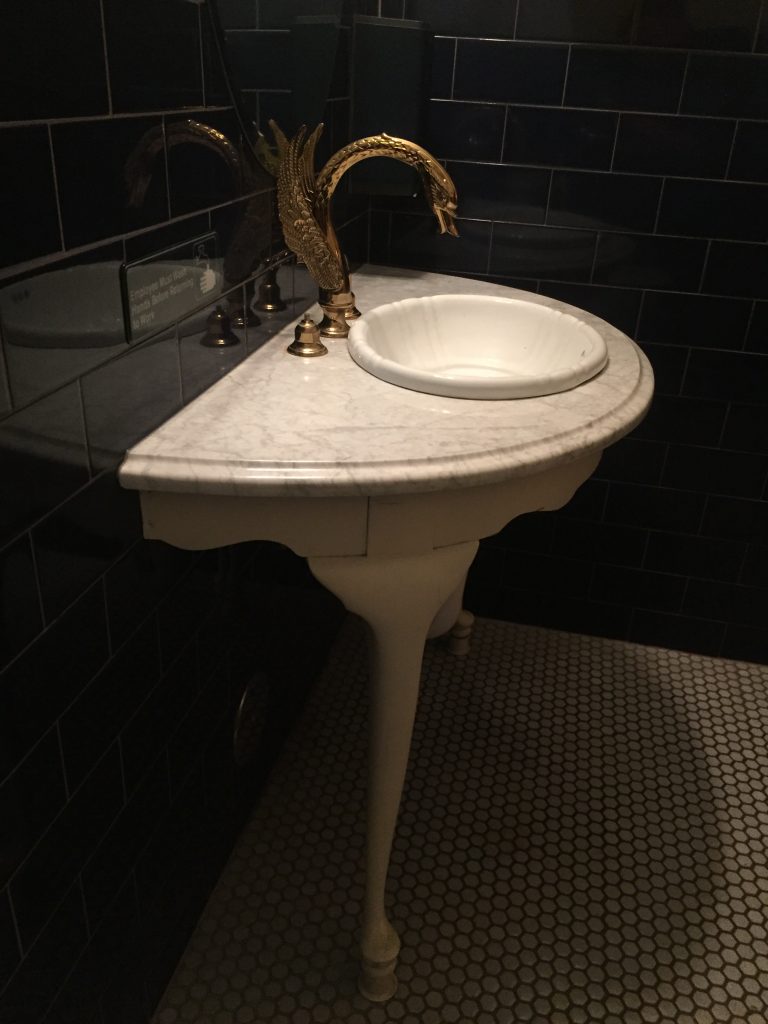
“Holy shit, this was a stupid idea!” I shout, too scared of the water to be seasick, “You told me you knew what you were doing!”
The Editor grits her teeth at the helm and says nothing, steering the little houseboat with the dramatic flourish of a toddler mimicking its parent’s driving- back and forth, back and forth, seemingly into every opposing current the river can sustain. Something falls off the side of the boat behind me, a wooden plank- thankfully something from above the river. The plank holds steady with us long enough for me to pull it back up onto the deck. This is apparently upsetting enough to the Editor that she starts talking again.
“What the fuck do you think you’re doing?”
“I want my deposit back!” I shout.
“You won’t get anything back if you fall into the-”
The Editor is distracted by a boulder that looms up out of the water. We pass it so closely that I can smell the moss clinging to its ridges.
“How much longer do we have?” the Editor calls again.
“You think this,” I ask, clutching the frankenstein Shitholes 131 away from the water, “Goes into specifics about how far ahead this place is? Does it ever say anything like that?”
“What?” the Editor calls.
I flash back, briefly, to the scene at the docks this morning. It was sunny and still- a pleasant day. It’s hard to imagine that it’s still the same pleasant day, that the only danger on either of the shores that sandwich us is falling into a restful nap, lulled by the sound of rushing water. We must look like idiots from there.
“Just read out whatever it says!” the Editor calls again.
So I do.
‘It is a common, though erroneous, assumption that the wayside is associated strictly with what lies just off-road. In reality, veins of the wayside run winding into the country and it is the roads, modern by the standard of myth, that subconsciously reveal its pattern over time. Take, for instance, ‘Red Kraken Lake,’ which is deep in the unpaved wayside, easily a week’s journey through dense forest and beyond a series of steep ascents. Much of this trouble can be avoided in traveling by boat on a river that enters the lake on the northern tip and exits to the southwest, eventually flowing back toward civilization. The river, unpredictable at best, is only a viable means of transport in the autumn, rain-swollen, but hardly the hateful, frothing monster that feeds on spring’s snowmelt. It is faster than the hike, and easier, though it’s not at all easy.
A trying era breeds superstition and a trying path breeds legend, a discrepancy due, perhaps, to humanity’s sporadic, if well-warranted, distrust of its fellow man and it’s steady, if not naïve, trust of nature. The way to ‘Red Kraken Lake’ is difficult and the rumors surrounding it grow more vivid with each hiker-gone-missing, their grieving families subject to fluff-retrospectives that pick apart autopsy reports for any suggestion of the mythical creature of the lake.
The creature, if it exists, twitches below the surface like a human heart, vast for all its distance from the road, and red for all its silence.’
I throw up, finally. The combination of the waves and the reading push me over the edge, allowing some of my vertigo to subside. A short while later, the river calms somewhat and I take the helm while the Editor pisses off starboard, reminding me not to look as though I would take my eyes off the river for even a second to watch something like that. She and I are still strangers in many ways.
We’re still floating when night falls and I reluctantly agree to sleeping and steering in shifts. I wrap myself in a blanket and find the rocking of the boat puts me out almost immediately. Occasionally I wake, thinking the Editor had said something but, if she had, it wasn’t something meant for me.
When she does wake me up it’s well past time. She wraps herself in the same blanket and I stand, nervously centering the boat between the dark banks. The day’s clearness persists and, even without a moon, the stars manage to light the forest and the river ahead. I consider, just once, turning off the boat’s front light to experience the area as it would be without out trespass but, even as I reach for the switch, I hear the Editor grumble behind me.
“Don’t be an idiot.”
I had planned on letting her sleep in but, as morning dawns, a rocky outcropping in the distance begins to approach the banks from either side. Though the river maintains its size, steep cliffs rise to cut off any easy means of turning back. The Editor jolts awake when I call for her but takes the change of scenery in stride.
“Better than climbing them.”
I try to hide my growing nervousness from the Editor, a latent claustrophobia that’s inexplicably soothed by being inside the small cabin, away from the looming rock walls. When she calls me outside I realize she must have known. The cliffs open up ahead of us, circling ‘Red Kraken Lake.’
The plan was to spend a day or two anchored on the lake itself, to sit together in solitude and compile what we know about ‘Autumn by the Wayside’ and the company responsible for publishing it. We’ve uncovered too many pertinent details folded into our histories to ignore them any longer, things that go unheard in the noisy world of motel rooms and fast food pit-stops. Things we hoped would find voice on the water.
But the moment the anchor splashes into the lake, I know we won’t be staying long.
The silence at ‘Red Kraken Lake’ is deep and ominous. We find ourselves checking the water over the side, staring into it for any sign of movement. Floating on the lake is like being suspended in the air- weightless, yes, but consumed by the fear of falling. As the sun passes into the late afternoon, the Editor is the first to admit it out loud.
“I don’t think I can sleep here.”
We arrive at a ramshackle dock the next day, 24 hours before the man from whom we rented the boat (and who agreed to tow the bike) is due to meet us. We work a little and sleep on solid ground. I wonder what nightmares I left on the lake.
The man comments on our exhaustion when he arrives and he takes the boat’s damage well, asking only $20 from the deposit.
“Enough for the beer I’ll drink as I fix it,” he says.
We shake hands and pointedly avoid speaking about the lake or the kraken, a decision, I realize later, that might only further the myth.
-traveler
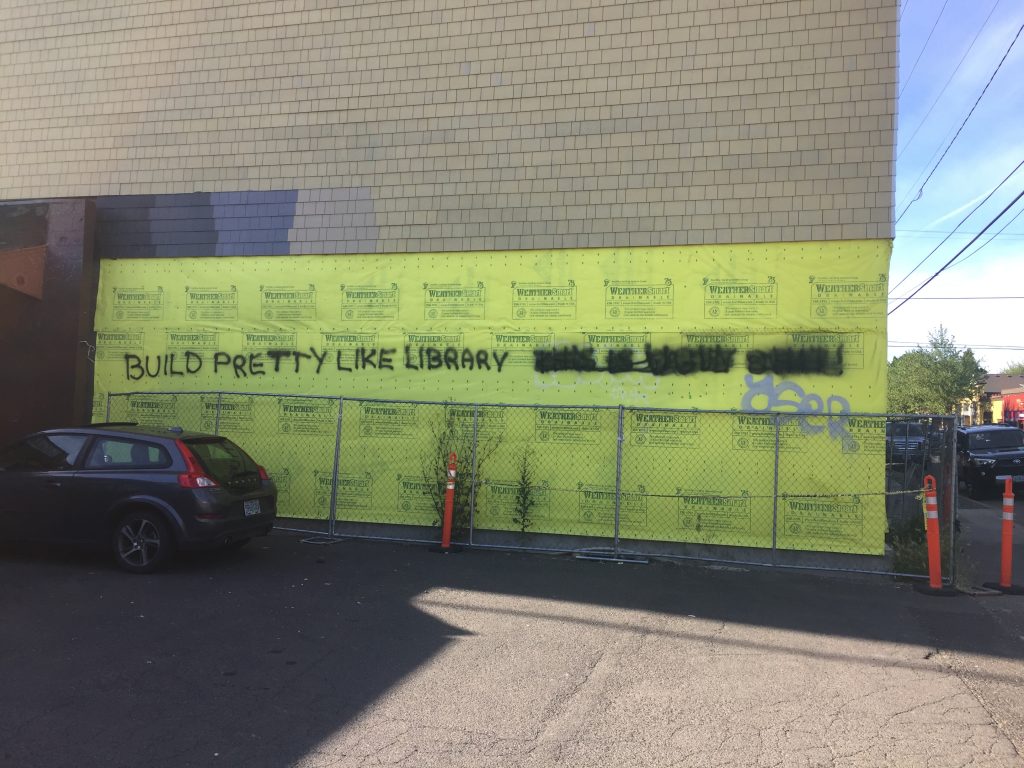
‘‘Autumn by the Wayside’ is primarily a book about strange places and the events they sometimes host but it is also, occasionally, a book about strange events and the venues at which they sometimes occur. Take, for instance ‘The Waterhole Death Sequence,’ which is not limited to any particular locale but occurs regularly in every U.S. town, city, and urban sprawl (and likely outside the U.S. as well, if one believes in that sort of thing). An archaeologist will tell you ‘The Waterhole Death Sequence’ is an ancient tradition, an American feature before roads existed to define the wayside’s boundaries. But they only know it for what it was.
Animals congregate at a waterhole and, inevitably, some of them die there. Their bones gather in the soil, frozen in the positions of death long after the water and life have gone from the place. We find them layered in nested circles, huddled closer about the center as time passed and the waterhole shrank to a puddle.
The ‘Waterhole Death Sequence’ can be observed in real time. As cities consume towns, as gentrifiers consume neighborhoods, the locals find refuge in the waterhole and the waterhole, in turn, hosts death. When the post office has closed and the cemetery encroaches with the molasses-speed of vultures grown fat, the waterhole’s light will be the last to wink out, casting skeleton shadows of the way things were.’
“We used to come here every week,” the Editor says, peeling the laminate from a cocktail menu, “I thought it’d make me happy to be back.”
‘Yui’s’ is a shithole, a dive bar for financial reasons rather than aesthetic. The ash tray between us shivers under the ceiling fan. It spills its contents over the plastic rim, deformed as it is by burns. The place is crowded, as though everyone still living in the gutted town nearby is present, but nobody speaks. When they do, it’s only to murmur something in the ear of their neighbor or to order a drink or to cough. ‘Yui’s’ is a shithole but it’s not among those listed in ‘Autumn by the Wayside.’
One of the Editors used to come here and the current Editor was insistent we stop.
“Every Sunday for three years we came to this place. And if something came up Sunday? We’d go Monday instead. Once a week, no matter what, until…”
“Until what?” I ask.
“Until she found out what was happening,” she says, suddenly more willing to distance herself from the previous Editor, “She was the one with the limp- the one that died on the gray road. Before we-”
“Became friends?”
“Realized we weren’t unlimited.”
“Shitty way to go.”
“The town I’m from is a lot like this. I think they all are. That’s why there’s always an empty lot to walk past.”
“Hmm.”
A group of three steps into the bar and stand at the entryway, seeing that the chairs and tables are taken. They look expectantly at the Editor and I.
“We should track down the people from Zeitgeist Publishing. There’ll be, like, records of them somewhere.”
“And then what?”
“And then we find out what’s going on!”
The group at the door have stopped moving altogether. They don’t approach us. They don’t approach the bar. They wait for the table and I raise my own empty glass to my mouth so that it might encourage the Editor to finish her own drink- a quarter cup of watery beer she’s nursed for nearly 45 minutes. When she doesn’t, I speak.
“Every time I think I find someone who knows what’s going on they tell me I’m supposed to be the expert. The rangers told me they didn’t make the path, they just keep it safe. The strangers didn’t make it either, they’re trying to turn it back over to whatever it was before people came along. I assumed there was at least a direction or a destination until you told me that the organization of the book is meaningless. What makes you think the publisher knows anything?”
The Editor is quiet, then, but she finishes her beer.
“Sometimes you find a path in the woods,” I tell her, “And it’s just something an animal made. Sometimes it’s just the easiest route between two places.”
“What sort of animal made this path?”
I shrug.
“There’s nothing easy about this.”
-traveler
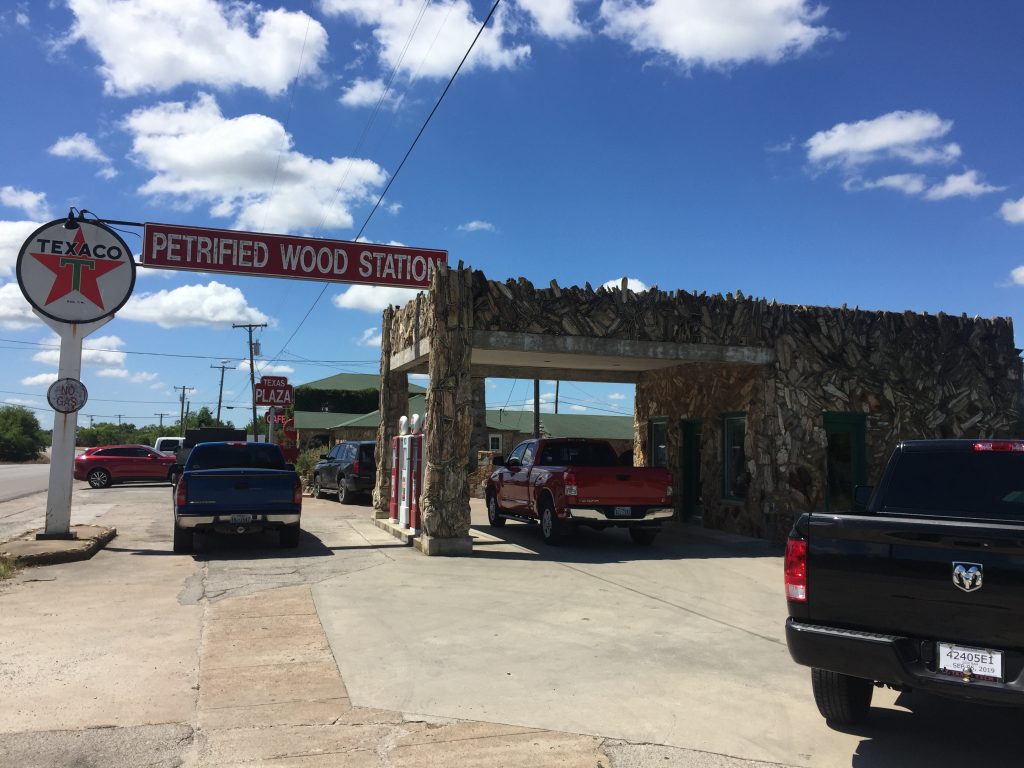
‘Travelers exiting the south side of Minnesota often find themselves stopping off the interstate in Fishborne, a small but immaculate town, frozen in time by a particularly rigid historical society. So carefully is Fishborne preserved, that a good deal of notice is drawn to a billboard on the outskirts, not far from the state line. The billboard, relative to the town, is an eyesore. Its paper is dry and peeling and it flakes off onto the countryside like diseased skin, sometimes reaching as far as Fishborne itself before being promptly swept into the trash. Its legs are bending and weak, warped by snowfall and wind and the incredible weight that it bears, the weight of hundreds of past advertisements, layered there like the flesh of the earth on which it stands.
This billboard can be rented like any other but, unlike the others, it is never cleared. The result is a less-than-ideal surface for adhesive and the first storm that comes along, sometimes even the first stiff wind, will pull strips of it down, creating the ragged collage that stands much of the year. Residents of Fishborne and of the small towns nearby see their future in these images and invite travelers to do the same (though an individual’s interpretation is kept as secret as a birthday wish).
From the billboard, a certain pantheon has even begun to evolve, the most recent of which is a chicken’s head and body (“Don’t be a chicken, vote ‘yes’ on Prop 84!”) perched on the neck of a middle-aged woman (“Who said we had to choose between youth and beauty?”). For nearly a month, ‘Mama Chicka’ shifted and evolved, her left hand giving way to the tip of a french fry and her chest falling forward to reveal the head of a goat. “Don’t Pay,” she would go on to say, before finally sloughing off into the dirt, “Be an EXIT NOW.”
It is a peculiar business, buying space on the sign. Locals attempt to design images that decay well, hedging bets on the perceived sturdiness of specific sections of the paper slab. The result rarely benefits anyone but the owner, who doesn’t believe in anything but the money he’s given.”
When the Editor and I arrive we position ourselves at the back of a small crowd that surrounds the ‘Sign Outside Fishborne.’ Heavy rain in the area has caused a molting and, even as we watch, strips of paper peel from the surface and splatter on the ground with wet, fleshy slaps. Much of the groups disperses as the sun begins to set, but a few set up camp and the Editor and I join them.
A wind picks up late in the night and I wake to the sound of leaves skittering across the pavement nearby- the mutter of this long autumn, louder for mingling with the drying scraps of old adverts and ashes from the fire.
I wake again, in the dark, disoriented by a massive noise and dragged from the tent by the Editor. A section of the billboard, nearly a foot thick, has peeled down to land as a multicolored log at the foot of the sign. Above us is an old image in its entirety- a black and white logo made up of nested circles and the words ‘Summer is the righteous anger of a star, try “Autumn by the Wayside,” available at your local secondhand bookdealer.’
-traveler
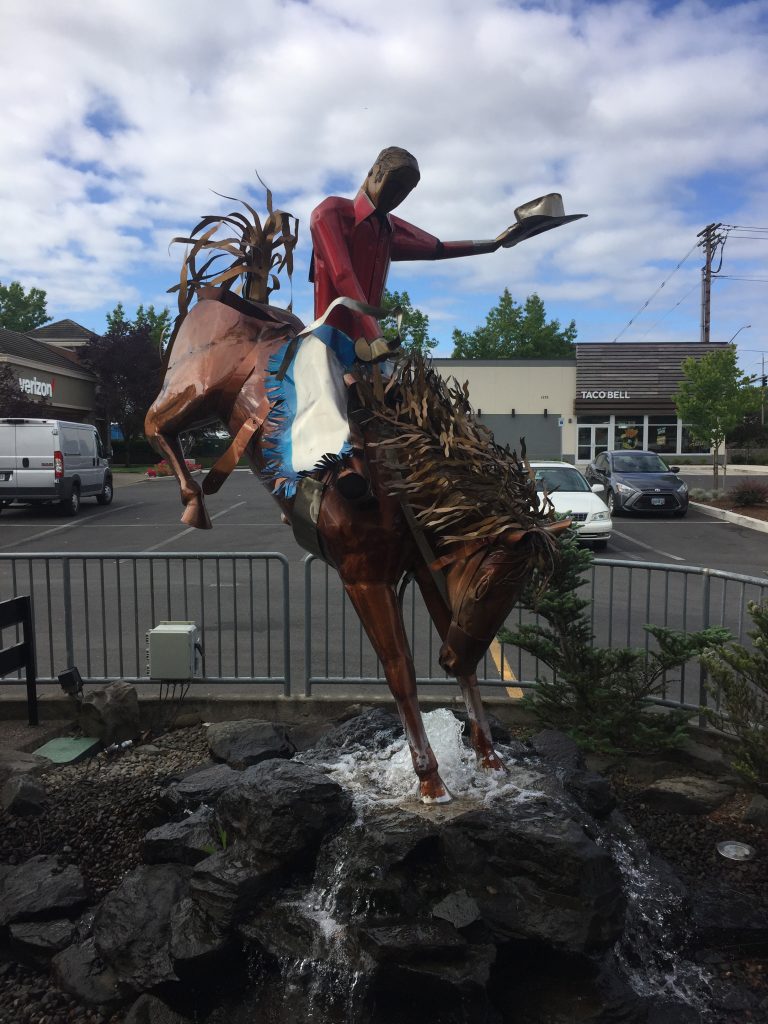
We start by organizing a quick summary of all the variable page 131’s in our collection of Shitholes. The Editor tears them from the spine and we use a stapler at the nearest post office to form a crude new ‘Autumn by the Wayside.’ The Editor laughs at the result, like a phone book left out in the rain.
“We spent so much collective time…” she mutters, “So much thought on the order of entries. We didn’t agree on a single thing.”
Shitholes is not an intuitive book. The entries aren’t alphabetical. They aren’t organized by state or region. I thought, for a while, there might be an underlying categorization, something philosophical, but the groupings held their shapes like clouds in the sky. The meaning I thought I understood was meaning I had projected onto it. I never saw the same cloud twice.
My first mistake was assuming that the author had organized it and, if the author was some version of myself, my second mistake was assuming I would know his thoughts (or some version of them). I don’t understand the Editor, though. I can’t discern any shape in her clouds. There may well be a storm building over me and I would be none the wiser.
“When we did this,” she says, and shakes her head, “When I did this the publisher wouldn’t sign off on the obvious arrangements. The first time it was just vaguely location-based, right? The second was the same, just really fucking specific, like with a table of contents coded to fucking maps. We’ve got to compete with the internet. I thought that’s what they wanted.”
The Editor finds a pair of scissors on the counter and begins to clean the jagged pages of Shitholes 131. A postal worker clears his throat behind us somewhere but we both know better than to turn.
“And then my emails were just pinging back like thirty seconds after I sent them a new draft- like, ‘We appreciate your continued work on the project but we don’t believe the target audience will find the current structure intuitive. Reliance on printed GPS can be difficult to translate to electronic applications…’ Shit like that is what I’m saying. Like, I’m desperate enough to find the coordinates of all the damn places and to organize them by latitude and longitude and throw together a chart for the table of contents and they spend less than a minute figuring it’s a no-go. And then after a month of this…”
The Editor reacts suddenly, pulling her finger away from the pages like she’s been bitten by a snake. She holds out her hand and a thin, bloody line appears across her index finger.
“Paper cut?” I ask, but she is deathly quiet as the blood wells to a drop.
The Editor has ended herself for lesser things, but never in a place so public. The heft of her revolver appears to me beneath her jacket, seeming to move under the leather. Its grip is curved in the gesture of beckoning, its deep cold is begging for the heat of release. A popping balloon will always make me jump and I will never grow used to the sound of gunfire. I brace myself anyway, clenching my stomach and folding my shoulders inward.
The Editor wipes her finger across the front page of the new book and grimaces. She presses down hard to stymie the pain, and when she speaks I realize that my hands are covering my ears.
“What?” I ask.
“Do you have a bandage?”
I don’t know if it’s the Editor’s intention, but the first page of Shitholes 131 is a place not far from the post office, a place we had both already noticed in the gloom of early morning. She scratches dried blood from the paper so we can read the entry together:
‘A woman grew up in Southern Illinois. She grew up in a small town but moved away after high school. She made money, enough to fill a warehouse (though she kept hers in a bank). With a sliver of her success, she returned to her town and built ‘The Land-Locked Lighthouse,’ refusing to place her name upon the thing. It shines for 30 miles on a clear night and pulses behind the winter fogs.
It has become a minor attraction, simply for the oddity of the thing. It draws families in from their road trips and they stay in the town and wonder what the woman must have felt of her home, to spend so much money on a thing that may only provide the smallest boost to the local economy. Must be quite the place.
The locals know otherwise, of course. They’ll illustrate, to you, the distinction between what it means to spotlight a thing and what it means to shed light upon it. A lighthouse is as much a beacon of danger as it is of safe-passage. There is no doubt this one signals warning.’
-traveler
© 2024 · Dylan Bach // Sun Logo - Jessica Hayworth